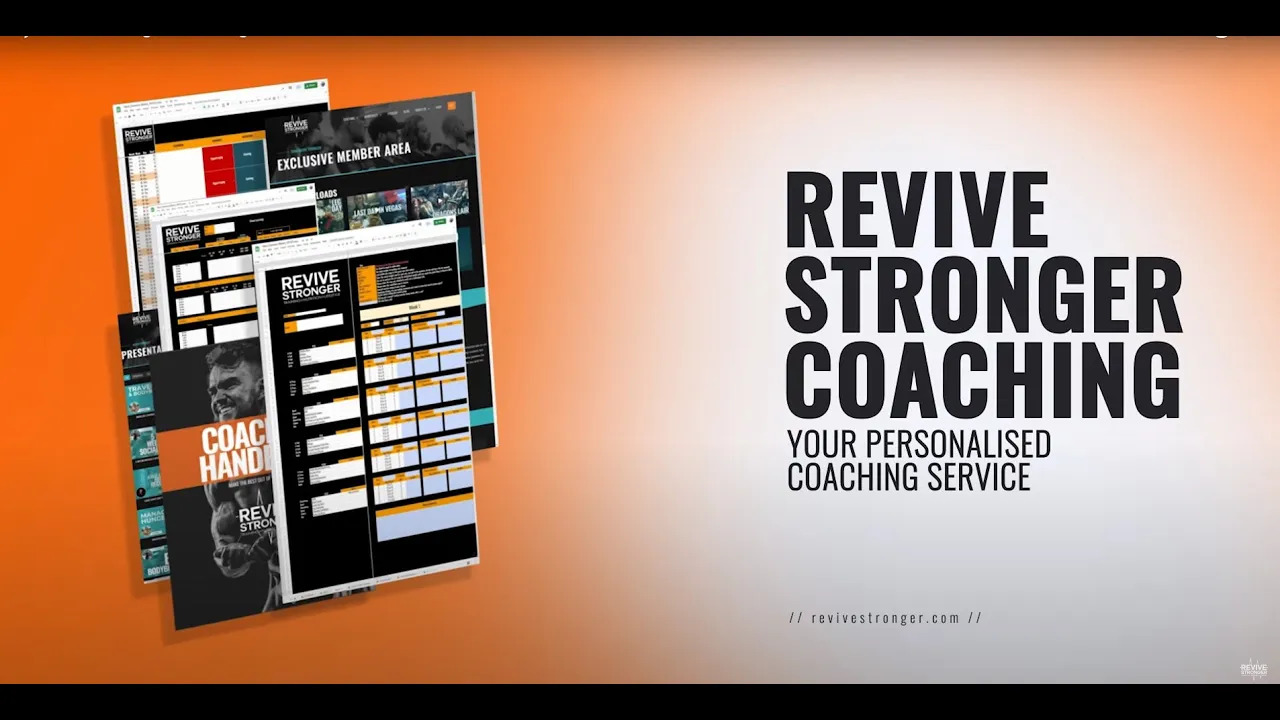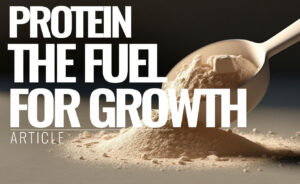
Revive Stronger
The Magic of Maintenance
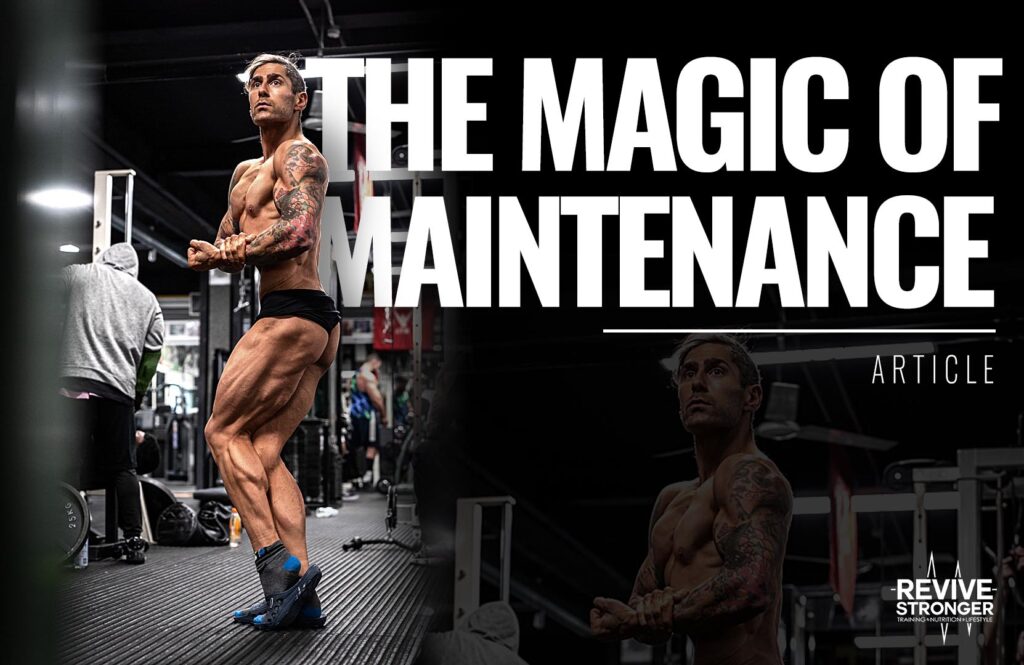
Author’s note:
Maintenance phases as a nutritional strategy are imo. a commonly overlooked and underestimated while a great tool in your arsenal and an important phase of proper nutritional periodisation. It has many physiological and psychological benefits and should be part of a well planned programme.
Key Points:
- What maintenance can do for you
- Why maintenance is probably a good thing
- Common misconceptions
- How to calculate maintenance calories
——————————————————————————————————————-
Table of Contents
What exactly is Maintenance?
Maintaining is exactly this, nothing is changing…but is it though? At least on the scale things aren’t really moving so you could make the assumption that your body is in homeostasis. However, if our training is progressively overloading we’re still synthesising muscle tissue and breaking down fat. This happens at the same time that muscle is being broken down and fat is being synthesised in other parts of our body. Imagine your body to be a big city. In some places buildings are being constructed and in other places they’re broken down. Based on the capacity of workers, building material and available space things are either build or broken down faster than its counterpart. Basically fat and muscle gain is a continuous process that always happens at the same time, it’s just that the ratio will change over time based on numerous factors such as training age, calorie intake, stimulus provided, etc.
Additionally, we’ll have to differentiate between maintenance in terms of training and maintenance in terms of nutrition. At first, both seem identical but in reality are two different things.
When we talk about maintenance in terms of nutrition it’s a pretty straightforward thing. We normally refer to the weight on the scale staying the same. This is being accomplished with a controlled increase/decrease in calories over a shorter/longer timeframe such as one up to several weeks. Maintenance of training is that you provide enough of a training stimulus that you’re neither growing nor losing muscle mass.
For example, if you’re eating at around maintenance but train with a MAV* (Maximum adaptive volume) you’ll still provide enough of a stimulus for muscle growth, Ie. over a long enough timeframe your body would undergo visual changes that will be noticeable. This is what people refer to when they talk about body recomp. Same bodyweight with a significant change in your body composition.
On the other hand, if you were to train with MV* (Maintenance volume) and you’re eating at maintenance, you’d pretty much look the same in 1 year from now. Things may still have changed marginally on a physiological level but nothing that is detectable by just looking at yourself.
*If you have no idea what I mean when I say things such as MV, MEV, MAV & MRV and want to learn more about it, I recommend checking out the following resources:
As you can tell, maintenance is quite a misleading term when it comes to training & nutrition. We still have to do something in order to truly maintain our status quo. It must be said that it’s way less than once assumed. There’s even a study that has shown maintenance of muscle tissue for over three months in length with a training protocol that consisted of only 1set per body part per week. We can even look at other studies (such as Radali et al. 2015 & B. Schoenfeld 2018) where they compared different training volumes and saw that as little as 1-2 sets per week led to hypertrophic outcomes for most of the participants. Furthermore, we have data that suggests that you’re not going to see any reduction in muscle mass with no training at all for up to three weeks.
That to me seems still very low and I couldn’t see myself only doing 1 set per body part per week unless I really have to but it shows that your maintenance training volume is probably lower than you think it is. If you want to play it safe you can probably go to 1/3rd of your normal training volume and I assume you could even go lower than this if you find yourself in a situation where you really have to. With 1/3rd of your training volume you should be able to maintain muscle mass quite easily or even continue making gains even though it’s too slow to visually detect any meaningful difference.
Now let’s cover what most people want to know first:
Isn’t a maintenance phase a waste of time?
A 100%. That’s why I decided to dedicate an entire article to maintenance. Irony can be hard to detect that’s why I’m telling you, this is irony!
You will definitely come across people who have very strong opinions about maintenance phases. Think about it, a strong opinion about maintaining a status quo…you see how ridiculous that sounds, right? Anyway, perhaps this article helps to put things in perspective.
Maintenance is the one goal that doesn’t get much of a look in. People are either trying to lose weight or gain weight, you rarely hear people say ‘my goal is to maintain’.
It’s not very sexy.
I think this mentality is a huge problem. Not only isn’t it appealing for most but it’s often the hardest thing for the vast majority as well. Oh the irony.
Adhering to a cut and being very much on point is the easiest job for most.
Gaining becomes a bit more challenging for many, not the weight gain itself but staying on track, being consistent and not getting complacent is what people struggle with most.
Maintenance however…oh boi, people think that’s easy? On paper it is but I have seen a lot of people struggling with it, especially after a cutting phase. If you end up gaining weight after a cut you can just pretend as if it’s intentional and say ‘well, I’m on a gaining phase and planned on getting back to a healthy body fat % quickly’ but maintenance will reveal whether you’ve been on a track or not.
In my opinion, people should start learning to appreciate periods of maintenance, the goal of being weight stable is just as important as going up or down in weight. If you never learn to maintain your weight what is it you’re going to do for the rest of your life? Cut & gain until you’re dead? I can think of better things to do for the rest of my life tbh.
A common question people have is the following: “Doesn’t that mean we are not progressing, we’re stalling out and wasting our time?”
Even though one metric stays the same (the scale), your overall progress doesn’t stall! If used correctly going through periods of maintenance could be one of the things you need to fast-track your progress. It may help you with the following:
- Help overcome fat loss plateaus.
- Help you sustain long-term fat loss.
- Help build lean muscle mass.
- Give you a physiological and psychological break
While maintenance isn’t the inherent solution for these things it can contribute to being successful with either one of these. For example, if you’ve been dieting for a pretty long time and the negative adaptations are quite present, such as lethargy, reduced NEAT and overall increased hunger, a short period at maintenance could alleviate most if not all of these symptoms, which would make the next dieting phase easier and thus more successful.
With everything you’ve learned so far about maintenance in terms of training & nutrition and realising that we still have to do something in order to maintain our current body composition, it becomes clear that maintenance=progress. You’re basically maintaining a level of body composition that naturally wouldn’t be maintained and in doing so you’re setting yourself up for future success. Got it? No?
Think of it that way:
You’re playing a video game. In the video game you have spots where you’re auto-saving, ie. whenever you die or fail you’ll fall back to the last place you saved the game. Now, the gamers amongst you probably know a game or two where you don’t have a “safety” saving spot. That means whenever you die, you’ll have to start the game or level all the way from the beginning. (Dark soul is probably the most frustrating example of them all) In both scenarios, you could still make progress but with the first one, you start from a much more favourable position whereas in the latter you need to replay and catch up first before actually moving forward.
In that you maintain your current physique which as we learned doesn’t nearly require as much work and effort as building the physique, you’ll have a much better starting point in the future and make progress straight away when being able to train hard again and/or eat in a surplus/deficit.
Now I hope I could shed some light on the question if it’s a waste of time. If you still think it’s a waste of time I’d challenge you to try it at least once. What do you have to lose? Let’s say you train for the next 20 years, will one maintenance phase have a huge detrimental impact? Probably not, can it turn out to be massively beneficial, sure thing.
In the end, you can only get out of it as a winner!
However, how do you know if you’re at maintenance?
Data, data, data…
There are many metrics that you can track in order to get a good idea of what’s going on. There’s no right or wrong way of doing it. I know people who barely track anything at all and have seen amazing results, while at the same time I’ve seen data nerds who strived off of that gathering a lot of data. It’s about collecting useful data for yourself and knowing what to do with it.
You can watch this presentation if you need some help with what variables to track and why/how to use them.
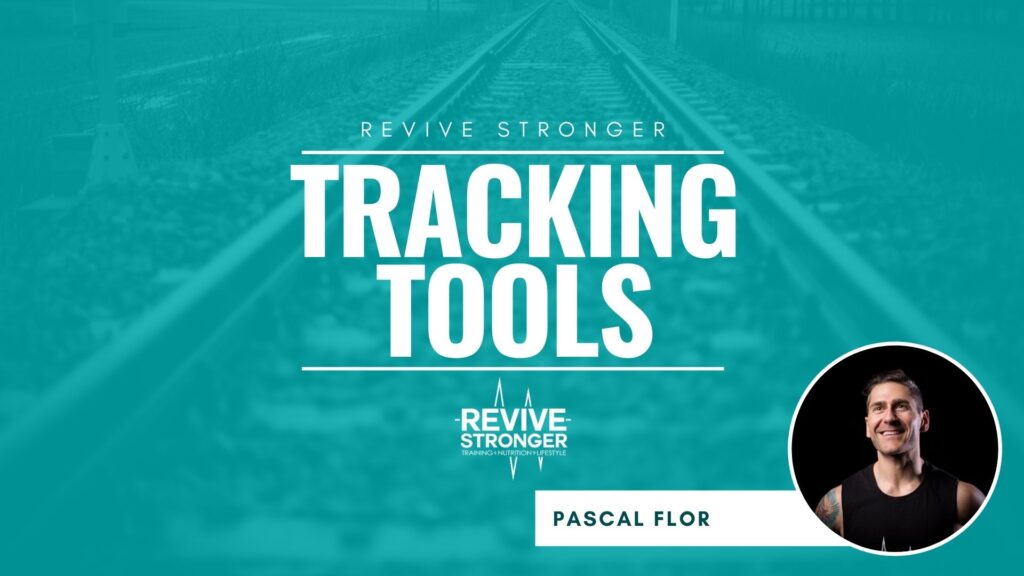
My preferred method is to get a person to weigh in a minimum of 4 times a week, preferably under the same conditions. That means:
- After waking up
- Before consuming anything
- Nude
- After using the toilet
- The same scale, in the same location
- Roughly the same sort of time
My routine looks like this:
I always wake up at 4:50 am and the first thing I do when I wake up is to empty my bladder. After peeing I pull out the scale and step on it. Voilá, done.
Doesn’t have to be more complicated than this. If you do it regularly it becomes a habit that is very easy to sustain because it doesn’t require a lot of focus or effort to get the job done.
Why is the above important?
Well say you weigh yourself at home nude one day and then the next you’re busy and cannot weigh yourself until later and decide to do so at the gym, clothed. You could have eaten a load more food, your clothes add to your weight, the scale is not your own and may be calibrated differently. That could really throw a spanner in the works.
Be consistent with your weigh-ins or you may as well not weigh in at all. Bad data is worse than no data because bad data influences our data which reflects the truth.
Assuming you’re following a training programme, your daily routine isn’t fluctuating massively day by day/week to week and you have some idea of your calorie average intake, you can just keep these static and know they’re staying the same.
Once you have got the consistent weigh-in approach nailed you will take those numbers and average them out. So if you weighed in 4 times at 177lbs, 179lbs, 177lbs and 175.5lbs you’d do 708.5 divided by 4 to give 177lbs as your weekly average.
177+179+177+175.5 = 708.5
708.5/4 = 177lbs
You would continue this approach for a few weeks, and you will be able to identify whether you’re maintaining weight or not.
You will want to get 4 weeks worth of average weigh-ins that do not show an upward or downward trend to know you’re at maintenance.
For example:
WK1) 177lbs average
WK2) 178lbs average
WK3) 176.5lbs average
WK4) 177lbs average
You can see there have been movements up and down, but no real trends in one direction. Generally, when we are losing weight you’d expect to see a somewhat downward trend across 4 weeks and vice versa. Weight loss, weight gain and weight maintenance are like a stock market, there’ll always be acute fluctuations but overall you want it to head towards a specific direction.
We will get to how to determine your maintenance calories later in the article.
Why We Need To Maintain
Now that you know that if done correctly and for the right reasons, you’re not going to end up just spinning your wheels but rather the contrary being the case. It’s part of the bigger picture of a smart, intelligent approach to lifting. I guess by now you should have realised that I think that everyone should go through periods of maintenance and I’ll further explain why. I mean, let’s face reality, if you’re planning in doing this for decades, are you really expecting to Always go through cutting/gaining cycles only?? If your answer was “yes” then you’re either trolling, wanting to be anti or just clueless. Of course, I’m not here to offend you, there’s nothing wrong with being clueless, it just means there’s still plenty to learn and being aware of not knowing something is one of the greatest gifts!
Before I’ll further elaborate as to why maintenance is somewhat mandatory, I need to go over what happens when we’re dropping or gaining weight and when you should consider a maintenance phase.
When should you consider a maintenance phase?
There are many reasons why you would consider taking a maintenance phase. Some I’ve mentioned already alongside some additional scenarios:
- Help overcome fat loss plateaus.
- Help you sustain long-term fat loss.
- Help build lean muscle mass.
- Give you a physiological and psychological break
- Severe injury/major sickness
- Recovering from prolonged cutting/gaining
- External factors
So let’s try to cover what happens when we lose/gain weight which makes my considerations quite obvious.
What Happens When You Lose Weight?
When we lose weight our body does a few things in order to ensure our survival. Negative adaptations automatically occur as a response to a hypocaloric environment (deficit). It was a great mechanism at times of femine but especially in western society these adaptations are far from favourable. Some people state that because you’re eating less, the Thermic effect of food goes down. While the statement in it for itself isn’t incorrect, it’s probably negligible. The biggest contributor to the overall adaptations are:
- You weigh less –> Your Basal Metabolic Rate (BMR) goes down.
- You have less energy –> Your Non-Exercise Activity Thermogenesis (NEAT) & Non-Exercise Physical Activity (NEPA) tend to go down.
- Overall Bodyweight goes down
- Your hormonal situation adapts:
- Ghrelin up, Leptin down –> You’re always hungry.
- Cortisol up, Catecholamine up, Serotonin down –> You’re a stress head.
- Testosterone down –> Like this just sucks massively for a number of reasons.
- T3 & T4 Thyroid hormone down –> Less energy expenditure.
- Dopamine increases with highly palatable and calorically dense foods
Losing fat can be challenging and hard. If you want to keep losing fat you probably have to come out of your comfort zone. However, as you will see taking time out will help you in your fat loss pursuits, making it less of an awful experience and sometimes even joyful!
The adaptation via BMR only make up a small portion of things and is most often just temporary. It was observed that people who underwent severe cases of bodyweight reduction only have seen a reduction of BMR up to 15% and again, that was only temporary. The biggest adaptations are due to NEAT. People with a flexible metabolism are most often the people that get either super active or super sedentary. Ie. if you’ve been someone who has always been quite skinny, chances are that you’re always been very active and with an increase in caloric intake just got more active. On the other hand, if you’re someone who felt like you’re getting fat very easily, chances are that you aren’t getting more active with higher consumption of calories.
That being said though, we all end up in the same spot if time wasn’t an issue. The longer you are in a deficit the more likely it is that the negative adaptations will accumulate which in return means that your body is likely to lower your Total Energy Expenditure (TEE). Our metabolism adapts to what we give it, thus long-term caloric deficits lead to a reduced-calorie expenditure. Ultimately, our bodies main priority is to protect us and secure our survival and it’s fantastic at doing so (damn you!). We can’t just ignore millions of years of evolution only because we managed to develop a society in which we don’t have to fear for our survival day in day out. 100 years of industrialisation is a joke for life on earth. Just because we as humans created an environment in which we have the freedom to think about self-development instead of finding the next meal doesn’t mean our body is well aware of it. Isn’t that ironic? We’ve created a world that gives us extreme levels of freedom while at the same time, making it much more difficult to resist our deepest natural drives.
We want to be shredded, have a six-pack, look like “XYZ” but at the same time, we want all the cereals, all the pizza, all the sweets.
It’s the fight of your lifetime. At the moment it’s our body that went through millions of years of genetic mutations and physiological adaptations which evolved through different organisms vs. modern societies 24-hour food availability, psychological desires and cultural norms. In short, your body will fight against fat loss and our environment doesn’t make it any easier to stay lean or be lean. Don’t hate the amazing system that is your body. It only wants to protect you, it just doesn’t know better and does what it always has done…surviving. The physiological and psychological changes are to be expected, they come with the territory.
Our metabolism will adjust accordingly to the given parameters.
What Happens When You Gain Weight?
Fact is that you can gain for a very long time before seeing significant detrimental effects. It’s more likely that you simply don’t like to see yourself in the mirror before you’re running into health consequences. I still think it’s important to at least mention some of the effects and potential consequences we may face when we’re gaining.
Statistically speaking the heavier you are the higher the mortality risk. Of course, being 100kg of pure muscle mass or 100kg of blob are two different things. From a medical perspective, being obese comes with a lot other risk factors, that being said though, a heavy individual puts quite a heavy pressure on your cardiovascular system. Not only that, blood pressure can become a real issue. Most of the people reading this won’t be on a lot of exogenous hormones or be genetic mass monster freaks, neither do I assume that you let your body fat % increase that much that you may face any of these issues.
With that in mind, we can immediately get rid of one of the myths that are out there that is insulin sensitivity, p-ratio and that you get more out of a gaining phase the leaner you are. No evidence does really support that idea. You can even bring up countless arguments against that theory. Especially for natural athletes, when your body fat % is in a reasonable range, don’t even bother thinking about these things…honestly.
Alright alright, with that out of the way let’s look closer into what’s happening when you gain weight. Just on a sidenote, this isn’t an article about the mechanisms behind muscle hypertrophy, what I’m going to touch on are the physiological & psychological effects that you may or may not experience.
Assuming you have been gaining for a while, what are things that occur? Most likely adaptive resistance is building up.
The Magic of Maintenance
Our body doesn’t necesarily want to lose weight…unless you’re Jabba, then it’d love to but you’re continuing to eat weird creatures…
The downregulation of our metabolic rate and the difficulty of the diet eventually come together to make our fat loss quest very challenging. That is where the magic that is maintenance comes in. What happens when we stop aiming to lose weight and aim instead to maintain:
- Energy levels come up
- Hunger dissipates.
- Performance increases.
- Overall Stress goes down.
Essentially, everything that came down during our diet will come back up. You will feel more like your usual self and the machines start running properly again. However, this doesn’t occur overnight, it seems that you need to be at maintenance calories for at least 3 consecutive days to see everything come back up. A one day refeed won’t cut it. The longer you’ve dieted for and the lower your body fat % the longer it will take to feel relatively normal again.
But what if you haven’t got to your fat loss goal yet and you’re not happy maintaining your current weight? Well, I am not saying this is the end, it could be, but it doesn’t have to be. I like to see this as “the diet before the diet”. The length of time you spend at maintenance and how you get there will depend on multiple factors. Think of this as diet periodisation, you’re lowering the intensity to allow yourself to come back stronger.
Imagine doing a roadtrip. It’s a pretty long journey but you should be able make it there in one day. You could either;
- drive for 10hours straight or
- take 11 hours with a 2×30 minute breaks inbetween. During the break you got out of the car, get a coffee, go to the loo, get some fresh air, etc.
What does sound more relaxing and easier? It’s pretty clear to me but just for the sake of it, it’s 2! Yes, it may take you an hour longer but with much less stress, an empty bladder, less risk and so on.
The way you go about it is entirely up to you of course. You can even combine it with weekly refeeds or diet breaks during deloads for example. With many of my fat loss clients, I get them having a full diet break eating at maintenance every 3 months or 10-15% of lost body weight. I myself wouldn’t count one or two days of refeeds as a maintenance phase. You may be eating at around maintenance but the body is still in a “fragile” state for a lack of better words. To me maintenance is everything from one week up to several months, ideally an entire meso-cycle.
Of course sometimes that isn’t necessary as they have a holiday or a weekend away at some point and we use smaller frequent breaks instead of weeks at maintenance. I have had people who have been struggling to drop any weight for say 3 weeks or so who I have put on diet break for a week. They then come back on the same intake as before yet start to drop weight they couldn’t before, often with less cardio. It may seem like magic, but it isn’t, the body cannot break the rules of physics. The break will have increased all the factors that downregulated enough to allow them to significantly increase their total energy expenditure, thus creating a calorie deficit that wasn’t there before.
Furthermore, I often see people get down about maintaining weight for 1 week. Maybe they’ve had 4 successful weeks, losing a pound on average, then week 5 comes and they maintain. They get all fed up and annoyed but in reality I see that as a massive win. Maintaining a lower body weight is so empowering, it is what most people struggle to do. Studies prove it, people are great at dieting but keeping the weight off is the hard part.
As you can see with the two graphs below, overall the trend has been for calories and weight to come down. However, there have been periods of higher intake, and periods where weight has pretty much stalled. An example where you can see this is in late April and early July, calories came up to around 2300kcal, which is maintenance for this individual, yet weight loss continued to come down after both events.
When I have clients who maintain for a week I always congratulate them as much as if they dropped a tonne of weight. Plus weight loss isn’t always linear in the short term, you might have one week where your weight even goes up a little but within the next two weeks it may well drop to an all-time low. Just keep that long term goal in mind, and don’t stress, it isn’t worth it and it isn’t productive. Only because the weight isn’t coming down doesn’t mean we’re not burning fat. It can easily be masked by short term fluctuations such as increased gut content, water retention, sodium intake or a combination of all of them.
Some of my most successful long term fat loss clients regularly use periods of maintenance, and all of my fat loss clients do have planned periods of staying at the same weight. It’s a no brainer.
Why You Should Maintain Before You Gain
In our book Get Big, Stay Lean I talk about a point at which you will want to think about stopping the gaining phase and potentially doing a mini diet to cut back on some of the fat gain that has taken place. When we’re going into a gaining phase we either feel great at first or still have to deal with the consequences of a cutting phase. Negative adaptations don’t just disappear right when you increase your caloric intake. Depending on how long you were cutting for and how lean you got it can take up to several months before feeling fresh and ready again. If you end up still dealing with the negative consequences of dieting you can’t expect to make rapid physical progress.
Up to this point I haven’t found a clear trend in what’s going to happen with people. Sometimes people won’t see a major increase in performance and pumps right after a cut and sometimes people will report that numbers are flying up and the pumps are insane.
I’d say that the people who are experiencing numbers going up may still be in a position where it’s nearly only progress on paper and not necessarily true physical changes.
Let’s take bring up a visualisation;
Assuming you dieted for a long time and your performance went down a bit, which is absolutely normal, don’t be fooled by influencers telling you they gained strength during a prolonged cutting phase. The cut could be seen as a necessary means in order to move forward again.
Imagine it to be a car. You’re driving on the main road for a long time. You’ll make great progress but all of a sudden the road gets worse and worse. Bumpy, muddy and all of a sudden it ends. You could decide to just continue driving but perhaps there’s a cliff ahead. You don’t know because the road ends and going any further makes it ever more risky. You decide to put in the reverse and drive a good distance back again to the next crossing you passed by. After a while you arrive at the crossing and decide to drive into the other direction which is supposed to bring you to the same destination. You’ll be able to drive on the road for a long time but you know that if you just move forward, eventually the road will come to an end again, hopefully though, you’re ending up further ahead than the last time the road ended.
When you’re coming out of a long dieting phase you’ll be quite lean and fatigued. In doing so you’ve put yourself in a position to gain a lot of weight again. The body still has to deal with some of the dietary adaptations. You can now decide to now push into a surplus even though you’re probably not in a position to reap the most rewards or go into a maintenance phase, get rid of the diet fatigue and push forward once the body is fully capable of making use of the caloric surplus.
Going straight into a surplus will probably end in higher fat accumulation and less overall muscle gain. The body is still signaling that it’s starving and needs to pack on fat mass for times of starvation.
One more issue that you may or may not be familiar with is that people experience an insatiable hunger when coming out of a cutting phase. It may seem counterintuitive at first, you’re eating more food so how can it be that you’re hungrier?
It’s very likely due to the often mentioned negative adaptations that take place during a cutting phase and that the body really wants you to stay alive. If you immediately ramp up the calories and go into a gaining phase, not only are you running into gaining less muscle mass initially but it’s even harder to control your hunger.
You want to allow your body to stabilise itself, letting all those things that dip down during a diet come back up to normal levels. There is nothing worse than dieting down, to then pack on a load of fat back on.
Why You Should Maintain Before You Cut
To be honest, I hardly ever really use the word “should”. There’s nothing you SHOULD be doing. You’re free to do whatever you want as long as you don’t harm others or your environment. Especially maintaining before cutting is something that is less of an issue than going from cutting into gaining imo.
That being said though, there seems to be somewhat of a momentum when it comes to building muscle mass. It’s like a train that gets moving. It’s slow to get out of the station at first but also takes a long time to come to a halt. If you jump from a gaining phase straight into a cutting phase it could potentially mean that you miss out on some of the processes that are going on in the background.
Another thing to consider is satiety. Unless you have gained long enough in which the body is responding with being sick and tired of food, you’ll find yourself being quite hungry and food-focused in the first 1-2 weeks entering a cutting phase. If however, you lower the calories from a surplus->maintenance->cutting it may end up being less severe of a sensation.
The only other thing I can think of is that your adaptive resistance crept up quite a bit over the gaining phase and basically resensitising yourself for lower training volumes might be worth a consideration. In other words, you probably built up to this point due to recovery capabilities and ended up doing the highest amount of workload at the end of a gaining phase. The fatigue accumulated is something you may want to get rid of first, before entering the cutting phase.
How To Maintain
“What if I’m coming out of a gaining/cutting phase? How do I know what my new maintenance is”?
There are a couple of ways to go about it. What I’ve found is that for every +/-5kg of body weight change you can add or subtract 100-200kcal from your former maintenance intake. If you haven’t been at maintenance for a long time there are other ways of calculating it.
For example, got 4 weeks that aren’t trending downward? You can be pretty sure you’re maintaining. What if you are losing weight, how do you go about bringing maintenance? A method I like to use is to 100kcal to 1lb rule; raise your calories by 100 for every 1lb lost. So if you lost 3lbs over the course of the month, raise your intake by 300kcal.
This is taken from the traditional thought that a 3500kcal deficit over the course of the week causes 1lb weight loss, although this idea has been determined to be not 100% true, it is still a decent estimate. So if you lost 3lbs over 4 weeks you would estimate you were in a 10,500kcal deficit over the course of the month or 2625kcal a week, 375kcal a day. That’s 75kcal more than I am saying to increase by yes, but it is all an estimate and I prefer to undershoot than overshoot, if you still lose after 300kcal a day, I don’t think you will complain.
How To Use A Calculator?
Our bodies are too dynamic and complicated for calculations to be 100% accurate. Different formulas seem to work better for different people. That and the fact there are so many different formulas kinda indicates that they’re not the final word. At best they are an estimate, a prediction of what our calorie expenditure is.
However, you can use them as a starting point. The following calculation is taken from Get Big, Stay Lean and should get you right in the ballpark of maintenance:
Body Weight in pounds x 13 to 16
- Factors putting you at the higher range: male, high training volume, active job and low body-fat % (sub 15% for males, sub 25% for females).
- Factors putting you at the lower range: female, low training volume, sedentary and high body-fat % (over 15% for males, over 25% for females).
So if you’re a lean 25-year-old male with an office job who works out 4 times per week and weigh 180lbs you would go for:
180 x 14 to 15 = 2520 to 2700
You can try and land within that calorie range each week, monitoring your intake with your scale weight. Of course, macronutrients can impact our metabolism by small amounts, for example, the TEF of protein is higher than fat, but I am going to assume you’re eating a fairly similar day-to-day diet, as most do. That being said, I’ve never really seen any major difference myself considering that you want to at a reasonable macro intake with all macronutrients, taking 10g of protein and putting it towards carbs will probably yield a negligible effect.
If you need help with setting up your diet take a look at all the presentations we have.
https://revivestronger.com/product-category/presentations/
Furthermore, you’ll have to realise that our maintenance is dynamic, it changes day by day. A massive factor is our lifestyle, if one week your car breaks down and you have to walk to work vs. normally driving, your energy output is bound to increase. NEAT is one of the biggest factors of our daily energy expenditure and I don’t assume that you always do things 100% the same day in day out. That is just one example, but even if two people weigh the same, have the same exercise regime etc. they could have different maintenance needs, as one may be a real fidget whereas the other might just not move. The Principle of individuality raises its head again.
The key with using calculations is to not take them as the final word, use them and then adjust accordingly based on what we’ve discussed earlier.
Maintenance is Natural
So far you should have learnt:
- What maintenance is
- Why maintenance might be a good idea
- When and how to maintain
Also, you now know that our maintenance is always changing, day by day, week to week, always in flux. This is why we track different metrics in order to make small adjustments and don’t rely on calculators as our only tool. Furthermore, you now know that our bodies adjust our metabolism towards maintenance, you’ll likely come to a point where you stall, and maintain.
That is what I mean by maintaining being natural.
Most people outside of the fitness industry somewhat stick around the same sort of weight. OooKay I know we have an obesity epidemic on our hands but mostly that’s due to other reasons. Most bodies are doing all these small adjustments to keep them at maintenance without them even knowing.
Once again, if you’re still unconvinced about maintenance phases I encourage you to give it a try. What do you really have to lose?! Have you lost anything? No…if you end up being upset and think that you’ve wasted like 4 weeks of your training career, I challenge you to look back at your life and think about the months and years you wasted on other stuff…and yet because you’ll not experience any setbacks, there is actually no good reason not to do it.
So when you come to these stable points, don’t be mad, be happy, that you have managed to maintain a weight that is closer to your goal. By doing these infrequent maintenance periods you’re not only allowing your body to normalise everything, you are also allowing it to adjust slowly and get used to the sort of weight you want it to be. That will allow you to then move onwards and upwards with your goals, whether that be weight loss, gain or even continue to maintain your current weight.
Remember, in regards to training/nutrition:
Maintenance = Progress.
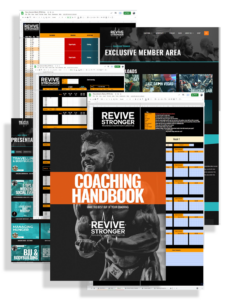
Coaching
I hope you liked this article. If you want to learn more or if you’re still unsure about how to apply the methodologies or the way to go about it, sign up for our coaching and benefit from first-hand experience and take your progress and knowledge to the next level.
We are a personal coaching service that helps you achieve your goals. We want you to become the best version of yourself.





